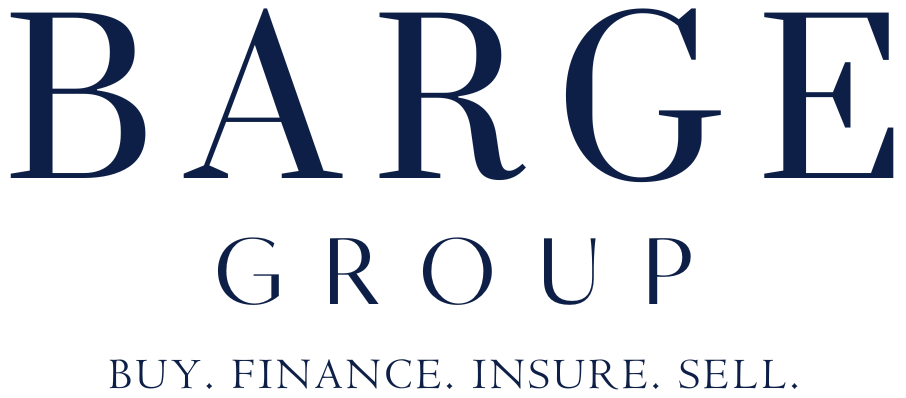
Purchasing a home is one of the biggest financial commitments many of us will ever make, and for most, it requires a mortgage. But what exactly is a mortgage? What are the key terms and concepts you need to know to make an informed decision? This guide breaks down mortgage essentials in a business-friendly, straightforward way so you can walk into any mortgage conversation with confidence.
1. What is a Mortgage?
A mortgage is a loan specifically used to purchase property, where the property itself acts as collateral. When you sign a mortgage agreement, you’re making a deal with a lender to pay back the amount borrowed, plus interest, over a set period. Until the mortgage is paid off, the lender holds an interest in the property, which means they can claim the property if payments aren’t made on time.
There are several types of mortgages, each with unique structures and requirements, but they all follow the same basic principle: the borrower agrees to repay a loan over time, and the property is the security for that loan.
2. Key Terms and Concepts to Understand
Before diving into the specifics of how to choose a mortgage, let’s explore some of the key terms you’ll encounter:
- Principal: This is the amount of money you originally borrow. If you buy a $300,000 home and put down $60,000, your mortgage principal is $240,000.
- Interest Rate: This is the percentage of the principal that you pay to the lender for borrowing money. Mortgage interest rates can be fixed (staying the same over the life of the loan) or adjustable (changing based on market conditions).
- Term: The term is the time frame over which you agree to repay the loan, typically 15 or 30 years. The term can affect your monthly payment and the amount of interest paid over the life of the loan.
- Amortization: This is the process of paying off your mortgage over time through regular monthly payments. An amortization schedule shows how each payment applies to principal and interest over the loan term.
- Down Payment: This is the initial payment you make when purchasing the property. While down payments vary, they’re typically around 20% of the home’s purchase price, though some loan programs allow for much lower down payments.
- Escrow: This is a third-party account where funds are held temporarily. In a mortgage, escrow is often used to hold property tax and homeowners insurance payments, which are then paid by the lender on your behalf.
Knowing these terms is essential as they come up in almost every mortgage conversation and directly impact how much you’ll pay for your loan over time.
3. Types of Mortgages
There are multiple types of mortgages to suit different financial needs and situations. Here’s an overview of the most common types:
- Conventional Mortgages: These loans are not insured or guaranteed by the federal government and typically require a higher credit score and down payment. However, they often offer lower interest rates and flexible terms.
- FHA Loans: Insured by the Federal Housing Administration, FHA loans are popular among first-time homebuyers and those with lower credit scores. These loans allow for a lower down payment (as low as 3.5%) but usually come with higher mortgage insurance costs.
- VA Loans: Available to military service members, veterans, and their families, VA loans are backed by the Department of Veterans Affairs. They don’t require a down payment or mortgage insurance, making them an attractive option for those eligible.
- Fixed-Rate Mortgages: With a fixed-rate mortgage, the interest rate remains the same throughout the loan term. This predictability makes it easier for borrowers to budget since the monthly payments remain constant.
- Adjustable-Rate Mortgages (ARMs): ARMs offer a lower initial interest rate that adjusts after a set period (typically 5 or 7 years). After that, the rate fluctuates based on market conditions. ARMs can be riskier due to unpredictable future payments but may benefit those planning to sell or refinance before the adjustment period.
Each mortgage type has pros and cons, so it’s essential to assess your financial goals and choose a loan that aligns with your unique circumstances.
4. How Interest Rates Affect Your Mortgage
Interest rates significantly impact the overall cost of a mortgage. Even a slight difference in interest rates can translate to thousands of dollars over the life of the loan.
- Fixed vs. Variable Rates: A fixed-rate mortgage means consistent payments, making it ideal if you prefer stability. In contrast, adjustable rates start low but change periodically. If you’re planning on moving or refinancing within a few years, an adjustable rate might make sense, but if you’re settling in for the long term, a fixed rate offers predictability.
- Market Conditions: Mortgage interest rates fluctuate based on market factors, including the economy and Federal Reserve rates. A strong economy may drive rates up, while weaker economic indicators can lead to rate cuts.
- Credit Score and Rate Impact: Lenders assess your credit score to determine the risk of lending to you, with a higher score often resulting in a lower interest rate. For example, a score above 700 may qualify for the most favorable rates, while a lower score could mean a higher rate and monthly payments.
Interest rates are critical when selecting a mortgage, as even a small difference can save or cost you significantly over time.
5. The Mortgage Process: From Pre-Approval to Closing
The mortgage process is detailed but manageable if you know what to expect. Here’s a step-by-step outline of the journey from pre-approval to closing on your home:
- Pre-Approval: Before shopping for a home, it’s wise to get pre-approved for a mortgage. A lender will review your finances, including your income, credit score, and debt, to determine how much they’re willing to lend you. Pre-approval gives you a realistic budget and shows sellers that you’re a serious buyer.
- House Hunting: With your pre-approval in hand, you’re ready to start looking for homes within your budget. Once you find the perfect property, you’ll make an offer, and if it’s accepted, you’ll move forward with the mortgage process.
- Mortgage Application: Now that you have an accepted offer, you’ll formally apply for a mortgage. Be prepared to provide extensive financial documentation, including tax returns, bank statements, and pay stubs.
- Underwriting: During underwriting, the lender verifies your financial information and assesses the risk of lending you the loan amount. This process may involve additional document requests and can take several weeks.
- Closing: Once approved, you’ll schedule a closing date. At the closing, you’ll sign all necessary paperwork, including the mortgage agreement, and pay closing costs. After closing, the home is officially yours!
The mortgage process can feel complex, but working with a trusted lender and real estate agent can streamline each step.
6. Mortgage Tips for First-Time Buyers
Navigating the mortgage process can be overwhelming, especially for first-time buyers. Here are a few tips to keep in mind:
- Check Your Credit Early: Since credit scores influence interest rates, check your score well before you’re ready to apply. If necessary, work on improving your score by paying down debt and making timely payments.
- Save for the Down Payment: Although some loans require minimal down payments, having at least 20% can help you avoid private mortgage insurance (PMI) and reduce monthly payments.
- Budget Beyond the Mortgage: Owning a home involves more than just a monthly payment. Be prepared for property taxes, maintenance, and insurance costs, which can add to your monthly expenses.
- Shop Around for Lenders: Don’t settle for the first lender you meet. Different lenders offer various rates, fees, and terms, so compare options to find the best fit for your needs.
By keeping these tips in mind, you can navigate the mortgage process more smoothly and potentially save money.
Understanding the basics of mortgages is crucial, especially if you’re considering buying a home or refinancing. From key terms and types of loans to the impact of interest rates and the steps in the mortgage process, each aspect can significantly impact your experience as a homeowner. Take time to research, ask questions, and compare options to find a mortgage that best fits your financial situation and long-term goals.
Mortgages are complex, but by building a foundation of understanding, you can approach this journey with confidence. Whether you’re a first-time buyer or looking to refinance, remember that your mortgage decision can impact your finances for years to come.
Ready to dive deeper into the world of mortgages? Fill out our mortgage contact form, or visit our website for more resources and personalized guidance. Our team is here to answer questions, help you compare options, and make your path to homeownership as smooth as possible.
